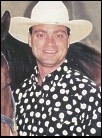In alphabetical order by last name
2023 Inductees

Benjamin Avant
Benjamin's first interest in NGRA was on the royalty team. He was Mr. NGRA First Runner Up in 1997 and Mr. NGRA 1998. His interest in royalty and fund raising led him to serve on the NGRA board of directors as public relations director, fundraising director, and eventually president and IGRA trustee for a partial term.
More about Benjamin
Andrew Goodman
Andrew became involved in the Missouri Gay Rodeo Association MGRA) in 1997 and while not a competitor, found many other ways to participate. He held the offices of secretary, vice president, president, and Trustee. He served as Miss MGRA 1998, 1999 and 2003. In 2003, Mandy Barbarell earned the title of Miss International Gay Rodeo Association (IGRA) 2004 in Tulsa, Oklahoma.
More about Andrew
Glenn Gore
When Glenn Gore was growing up on a farm and ranch in 1950's western Oklahoma, rodeo was a fact of life and an event you went to every year, whether it was the local amateur rodeo in his small town or the big PRCA rodeo in the nearest big city. Everyone went to both, and as a young gay kid Glenn idolized the cowboys who competed in those rodeos.
More about Glenn
Desiree 'Des' Gronwald
It wasn't until she found rodeo that it felt like HOME. Des joined the Colorado Gay Rodeo Association (CGRA), and her first Rodeo was Rocky Mountain Regional Rodeo in Denver, CO. It was there that she began Steer Riding and Wild Cow Milking, partnered with International Gay Rodeo Association (IGRA) legend John Beck.
More about Des2022 Inductees

Frank Elam, Jr.
Growing up in Dallas, he did not have a lot of exposure to the rodeo lifestyle, but when he attended the Roundup Saloon in Dallas, he got to know several members of the TGRA. In late 1989, Frank joined up initially as a volunteer at the local rodeo. Soon thereafter the contestant bug got him and he started doing camp events, chute dogging and calf roping on foot.
More about Frank
James Jenkins
James H. Jenkins Jr. was born in Miami, Florida where he spent his childhood years between the city life of Miami and country life on the family "Hobby" farm in central Florida. During those years James' love of horses and the country lifestyle began.
More about James
Rick Jones
Rick began his adventure with IGRA in 1990, when a friend suggested that they attend the Great Plains Region Rodeo (GPRR) in Oklahoma City (OKC). A gay rodeo?
More about Rick
Trenda Monnahan
In 1990, Trenda became a member of the Women's Professional Rodeo Association (WPRA). While riding bulls during her second year of WPRA competition, Trenda's head was stepped on, breaking her jaw. Sadly, this proved to be a WPRA career ending injury.
More about Trenda
Michael Vrooman
One of the earliest memories Michael Roy Vrooman Jr. recalls is seeing his sister on horseback with his father. He thought, as any child might, "If my dad is a cowboy, then I must be one too!"
More about Michael
Dee Zuspann
Dee joined the Kansas Gay Rodeo Association (KGRA) in the late 80's with Linn Copeland being the big driving force for Dee to become involved with KGRA.
More about Dee2020 Inductees
There were no Inductees for 2020 or 2021 due to the Covid-19 Pandimic
2019 Inductees

Doug Graff
In 1992, Doug quickly learned it was easier to meet men if you could dance. Luckily a guy took pity on Doug and taught him to two-step one Sunday afternoon at the Round-Up Saloon. Doug's next assignment was in Cupertino, California where he discovered another country bar and more cowboys... He also met an International Gay Rodeo Association (IGRA) contestant who Doug believed needed extra special attention.
More about Doug
Guy Puglisi
Guy became a member of the Nevada Gay Rodeo Association in March 2000 immediately after his first exposure to the sport of gay rodeo, which was at the Road Runner Regional Rodeo in Phoenix, AZ in January 2000. Since then, he has served on the NGRA Board of Directors
More about Guy
David Renier
David heard about the gay rodeo from a friend but was too young to enter, so he waited until he was 21. His first rodeo was in Los Angeles in 1985 and he entered the barrel racing event, where he finished in the top 10. That was the beginning of many more years of traveling the United States with his friends.
More about David
Tim Smith
Tim joined the Texas Gay Rodeo Association in 1987, and rapidly became involved in many areas of the association. In 1988, intent on running as a candidate for Miss TGRA 1989, he created the character Tessy. The characters of De Shannon (Mitch Gill) and Chili Pepper (Tony Valdez) were created at that time as well.
More about Tim
Anthony Valdez
After the cancellation of the 1988 IGRA Finals Rodeo in Reno, Tony knew that he had to do his part to make our rodeo history a legacy for the future of all of us. His dear friend, the late Gerald Ford, a former IGRA President, taught him how our involvement in our community would shape our history and help to grow our organization, and to be involved with a cause that was so much bigger than all of us.
More about Anthony
Jonny Van Orman
Jonny became involved in gay rodeo where she loved riding her horse. There was one point where she did do bull riding but decided that was not for her and began barrel racing with her horses that she loved.
More about Jonny2018 Inductees

Frank Harrell
Back in the 1980's Frank had subscribed to Drummer and Honcho magazines. In one of the 1995 issues, he found an advertisement for Roundup Magazine which he immediately subscribed to. The first issue he received, June 1995, had the listing for the Gay Rodeos for next year. This was the first time Frank had heard of the gay rodeos.
More about Frank
Dan Iversen
Dan started his gay rodeo years both in the arena, and in the meeting rooms, as well as being involved in outside related groups. A Founding Member of AGRA in 1984, he was also the AZ Fundraising and PR Director in 1986-87, and would be the Vice President by 1988. He was IGRA Rodeo Rules Committee Vice-Chairperson and Chairperson starting in 1987 and continuing on for a number of years through 1994.
More about Dan
Jeanne McLeod
Jeanne McLeod has loved TGRA/IGRA since her first rodeo as a spectator in 1988. She joined the action the following year as a member and ran for Miss TGRA in 1990. She won the title in 1991. Since 1990 she has served in numerous TGRA administrative roles both in San Antonio and Austin on the chapter and state level. She served as TGRA President for 5 years.
More about Jeanne
Jack Morgan
Jack was introduced to gay rodeo in the late 1980's by Jerry Cunningham - who is like a brother to Jack - when Jack and Jerry were young and pretty, they actually modelled together for several years. Jack's initial volunteer experience was at RMRR 6, 30 years ago! Jack has been a member of CGRA ever since.
More about Jack2017 Inductees

Tommy Channel
Tommy Channel was born in Cushing, Texas; a very small town about 2 hours east of Dallas. Tommy moved to Denver in the summer of 1985, and quickly found "Charlie's Bar," Wayne Jakino (Charlie's Manager and IGRA Founding President), and Tommy's significant other, David Hill. That was 32 years ago and Tommy is still in Denver with David. During the early years with CGRA Tommy had a horse named Sassy, and he has a few buckles that she helped him win.
More about Tommy
Laura Lee Laykasek
In 1981, Laura moved to San Antonio, Texas where she made her living as a carpenter. Her adult rodeo career began two years later when Laura met Judy Gayle, the owner of "Our Place Bar" of San Antonio. A group discussion was being held in the bar about forming the Texas Gay Rodeo Association (TGRA), and Laura became involved.
More about Laura Lee
Tamara Marks
Tamara Marks has always been a country girl at heart. Born in Ohio, she lived on a small acreage where she learned to ride bareback on Bridget, her pony. During her 20-year venture with IGRA, Tamara participated in 124 rodeos, 16 World Gay Rodeo Finals, and 9 IGRA conventions. She competed and won ribbons in calf roping on foot, and buckled in the Wild Drag Race, both of which earned her invitations to compete in IGRA's World Gay Rodeo Finals.
More about Tamara
Judy Munson
Judy Munson was born and raised in San Diego, California, along with two older brothers, because her Dad was in the U.S.Navy. Judy met Lori, her partner of 36 years, in Calgary in 1981. Judy's first introduction to competition was due to Kim Dawson, an International Gay Rodeo Association (IGRA) Arena Director, who was looking for a female to compete with two cowboys. Kim told Judy: "All you have to do is hold a rope on this itty bitty calf, and when it comes out of the chute you hand the rope to your cowboy and you're done.
More about Judy2016 Inductees

Andy Anaya
Andy Anaya was born in 1962, and grew up in Tucson, Arizona. While in High School in Tucson, Andy excelled at team roping and with his partner, won the High School National finals in 1980. Andy's first IGRA rodeo was the 1992 Road Runner Regional Rodeo. Andy earned 490 points and came in Third Place for All-Around Cowboy, behind his Life Partner, Greg Olson, who earned 610 points, and his Team Roping partner, Dennis Terrell, who earned 500 points.
More about Andy
Amy Griffin
Amy was born in Jackson, Michigan on November 14, 1960. After spending two years unsuccessfully prodding Amy to join them in competing a pair of well-meaning, but duplicitous friends, Mark Marshall and Bill Pederson, signed her up for a Golden State Gay Rodeo Association membership, and as their Wild Drag Race partner for the "L.A. Rodeo" in 1993. Having never seen any of the IGRA rodeo events, she was skeptical, and a bit frightened.
More about Amy
Dennis Terrell
Dennis was born in Tyler, Texas in 1961, and grew up in a town close by called New Day, Texas. Dennis' first IGRA rodeo was the 1992 Road Runner Regional Rodeo. Dennis earned 500 points and came in Second Place for All-Around Cowboy, behind Greg Olson, who earned 610 points. Dennis competed in all 12 IGRA rodeos that year, including the IGRA World Gay Rodeo Finals in Phoenix. He was the All-Around Cowboy at eight of those rodeos.
More about Dennis
Murmur Tuckness
Mary Myrle Tuckness was born in 1955 in Del Rio, Texas. Her parents, Robert and Mary Lee Tuckness moved their family to the San Angelo area in the late 1960's. As a spectator, she attended her first gay rodeo in Denver in 1983. After checking it out and watching to learn, she and a few friends traveled to compete in Denver's third Rocky Mountain Regional Rodeo. She competed in bronc riding, bull riding, steer riding, chute dogging and wild cow milking.
More about Murmur2015 Inductees

Clarence Bates
Not much is known about Clarence. He owned a small ranch near Kingfisher, Oklahoma, where he operated the Bar B Rodeo Company. Clarence was the stock contractor who provided livestock for the first rodeo, and many follow-up rodeos in: Oklahoma City, Phoenix, Chicago, Little Rock, Colorado Springs, Detroit, Billings, Omaha, and Albuquerque. Clarence was murdered on December 1, 1999
More about Clarence
Wade Earp
Wade Wayne Earp is a paradox. He is one of the toughest competitors you will never want to face, and he is one of the nicest guys you will ever meet. Wade is often described as having a heart "as big as Texas!" He has volunteered countless years of his time to making the rodeo and all his other beneficiaries the very best they can be.
More about Wade
Les Krambeal
While growing up, Les' primary interests were his horses and 4-H. His grandmother nurtured his love of horses, and he began competing in horse shows at the age of three. Over the years, he became both a local and state champion. In the summer, Les would go for long trail rides, and he also participated in many cattle drives riding his favorite horse, Penny.
More about Les
Lewis Sanders
Lewis Sanders comes from a long family history of rodeo. Lewis' grandfathers, great grandfathers, and many great uncles were some of the pioneers of rodeo in Arizona and New Mexico, dating back to the late 1880's. As he was growing up, Lewis attended rodeos whenever he could and always yearned to be the 'cowboy' his granddad was. He loved riding horses, but was never a great rodeo competitor.
More about Lewis2014 Inductees

Jerry Hubbard
Jerry Hubbard was born in Fort Stockton, Texas. At the age of 12 he began riding horses and competing in 4H gymkhanas. Jerry continued to compete in Horse Speed Events at rodeos throughout his high school years. Jerry was always there to help other contestants get set on their bucking animal. After twenty years working for Texaco Oil, Jerry took an early retirement package in 1992 and went to school to learn horseshoeing.
More about Jerry
Cindy McCormick
Cindy McCormick was already a Charter Member of the Golden State Gay Rodeo Association (GSGRA) when the first Los Angeles gay rodeo was just in its planning stages. When rodeo weekend arrived, Cindy was ready to compete - except in the rough stock events. Acording to the archived rodeo score sheets from 1985 through 2000, Cindy never competed in a rough stock event!
More about Cindy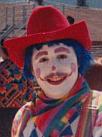
David Pizzuti
At the age of five, this Hall of Fame inductee went to the circus with his family, and on the way home told his Mother: "When I grow up I want to be a clown!" At the age of 21, The first documentation of David performing as a rodeo clown was at the first "Bay Area Rodeo" which was held in Hayward, California in September 1988.
More about David
Brian Rogers
In 1992 the Nevada Gay Rodeo Association (NGRA) was formed in the state where the first gay rodeo had been held, two decades before. Informed by his Texas/Oklahoma upbringing and committed to the celebration and preservation of the gay country and western lifestyle, Brian joined NGRA in 1996 and has been an active member on the NGRA Rodeo Planning Committee ever since then.
More about Brian
Ron Trusley
Ron was never athletic and was very shy. He was not an out-going person and is still shy. Ron was a founding member of the Desert Valley Squares - a square dance group in Phoenix. When the Arizona Gay Rodeo Association (AGRA) was started, the "Midnite Ramblers" was a square dance group within the rodeo association. He was voted in as a member of this square dance group and quickly became "hooked" on rodeo.
More about Ron2013 Inductees

Linda Frazier
Linda's initial exposure to gay rodeo was a fundraiser behind the old R & R Brass Rail bar in Wichita. Linda had never seen clogging before and she thought it was something she really wanted to do. Linda's first performance outside of Wichita was three months after joining the Kansas Rockin' "R" Cloggers, at the first Great Plains Regional Rodeo in Oklahoma City in August 1986.
More about Linda
Mitch Gill
Mitch became involved in many organizations, but his real loves were the International Imperial Court System (IICS), and the International Gay Rodeo Association (IGRA). Mitch held many titles in both organizations, and served as a role model for hundreds.
More about Mitch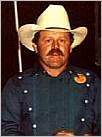
Lee Kittleson
The star of the gay rodeo circuit galloped through Manhattan streets in an attempt to raise funds for AIDS research. Lee Kittleson saddled up his horse at Madison Square Garden and weaved through the busy traffic on Eighth Avenue to hold a news conference at Central Park
More about Lee
Jeannine Tuttle
At age seven, Jeannine's family moved to Albuquerque, New Mexico where her love of horses began...riding her aunt's horse and her neighbor's horses every chance she got. When she was 13, Jeannine talked her Grandfather into buying her, her first horse. He was a 14 month old Quarter-Pony. Jeannine broke and trained him herself and then started competing in play days and 4-H rodeos.
More about Jeannine2012 Inductees

Brian Helander
"I enjoyed every minute of my term as IGRA President, despite the sometimes difficult task of leading an organization of 26 Member Associations with about 5000 individual members, all with diverse viewpoints. I think I only lost 3 or 4 friends, but always tried to see the bigger picture and the greatest good. I brought my best independent thinking to my job as President."
More about Brian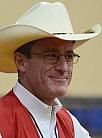
Michael Lentz
Michael's interest in country/western dancing, love of the cowboy scene, excitement for the thrill of rodeo competition, and desire to share these experiences with others made him one of the pioneers who first brought gay rodeo "east of the Mississippi".
More about Michael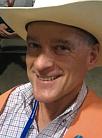
Patrick Terry
Patrick's unwavering support and dedication has helped make the International Gay Rodeo Association (IGRA) and many of the Member Associations and their rodeos what they are today.
More about Patrick2011 Inductees
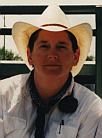
Erin Eaton
In November 1984 Texas hosted its first gay rodeo near Houston. When Erin arrived she knew she had to get involved somehow, so she worked as a Secretarial volunteer. The "Rodeo Bug" bit Erin hard at that first rodeo. Throughout her 20 year rodeo career, Erin worked in many positions from Chute coordinator to arena director across the IGRA circuit.
More about ErinBob Pimentel
Bob Pimentel has been a leader in gay IGRA rodeo for years. Bob was born in Redwood City, California just south of San Francisco. Bob started with gay rodeo in 1984 and continues to today. He has always maintained a personal commitment to gay rodeo, the western life style, and various AIDS/HIV related causes.
More about Bob2010 Inductees

Bryn Geerdes
All Bryn ever wanted to be was a cowgirl. And so she was! At age 2, wearing her brother's cowboy hat and boots, she would ride a wooden bench for a horse with a mop for a tail.
More about Bryn
David Hill
David was born in March 1954 in Alaska - which at that time, was still a territory. His parents, originally from Wyoming, moved to Alaska to seek work on the Alaska railroad. In 1955, they returned to Wyoming where he grew up.
More about David2009 Inductees
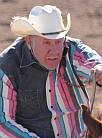
John Beck
John started riding on a black & white rocking horse that his dad made. He then received his first pony on Christmas Day, 1954. When he was in the 5th grade, his family moved to O'Neill, Nebraska where he joined the local 4-H club and started showing cattle and horses.
More about John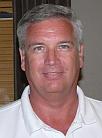
Charley Lanier
If he were thrifty, kind, and reverent, Charley Lanier could be the consummate Boy Scout, but fortunately for TGRA and IGRA, he channeled his dedication and talents to our organizations instead.
More about Charley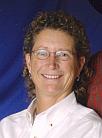
Candy Pratt
Candy Pratt was born in Dallas and grew up in Irving, Texas. She became the owner of her first horse when she was 8 years old. With intense practice and dedication, her horsemanship skills earned her hundreds of trophies, plaques, and other awards.
More about Candy2008 Inductees
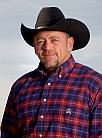
Chuck Browning
Chuck Browning was born in Casper, Wyoming where he was exposed to the ranch and rodeo lifestyle. He moved to Phoenix after graduating college and it was there that he was first introduced to IGRA in 1989. It would soon become apparent that rodeo was in his blood and a passion in his life.
More about Chuck
Bobbie St. Jeor
Bobbie became involved with gay rodeo when the Springfield Chapter of the Missouri Gay Rodeo Association was formed in 1991.
More about Bobbie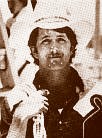
Ron Jesser
Ron was one of the Fathers of Gay Rodeo. He was instrumental in forming the original framework of IGRA and in the development of the first IGRA Rodeo Rules.
More about Ron2007 Inductees
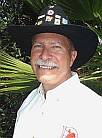
Roger Bergmann
Roger believes his greatest achievement was when he was elected President of the IGRA where he served from 1993 through 1995. He has great pride in the friendships he made during those years, and the accomplishments that were made by IGRA and all of the Member Associations.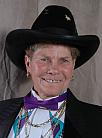
Sharon (Casey) Norman
Casey is a spirited, inquisitive and a fearless individual. Her love of animals, ranching chores and rodeo, while growing up on the family ranch, started her rodeo career. In 1961, when she was told she couldn't ride a buffalo, her response was "Put him in the chute." Casey won the Little Britches Rodeo that year.
2006 Inductees
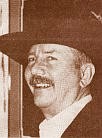
Al Bell
Al Bell left his legacy in the city of Long Beach with his country western flair. He and his, then partner, Pat McGrath opened a bar for those of us wanting country music, down home comfort and a place to plant our dancing boots. Floyd's was the place to be for many years. You would be able to walk into the friendliest bar in Southern California.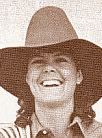
Candy Bell
Candy participated in rodeos for 10 years and won over 100 buckles, including 13 international championships. She finished her competitive career in 2001 in the same way she had started, by winning the steer riding buckle at the Phoenix rodeo.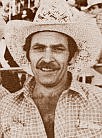
Phil Ragsdale
In Reno in 1975, Phil came up with the idea of an amateur rodeo as a fundraiser. He thought it would be a "kick" and although Phil passed away in 1991, he surely would be amazed to see how that dream has evolved thirty years later. Following is some of the story from the history of gay rodeo and IGRA:2005 Inductees
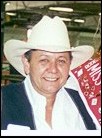
Linn Copeland
As a founding member of KGRA, Linn was instrumental in getting the organization up and running and Kansas was seated at the second IGRA convention in 1986, along with Missouri and New Mexico.
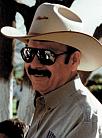
John King
John King, along with Wayne Jakino, Al Bell, and Terry Clark were IGRA's "Fantastic Four". They blazed a trail for all of us to follow, at a time when gay and rodeo were not fashionable.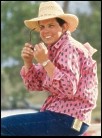
Sande Miller
Sande Miller joined the International Gay Rodeo Association in 1987. She was inspirational in changing the level of competition, raising the bar throughout and encouraging other female contestants.2004 Inductees
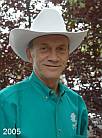
Wayne Jakino
Once upon a time, there was a man with a vision. This vision came about because a drag queen (or so they were called at the time) bumped into this man at the National Reno Gay Rodeo in 1981.